| Listing 1 - 10 of 151 | << page >> |
Sort by
|
Book
ISBN: 1283378779 9786613378774 1843318202 9781843318200 9781283378772 9788190757010 8190757016 Year: 2009 Publisher: London Anthem Press
Abstract | Keywords | Export | Availability | Bookmark
 Loading...
Loading...Choose an application
- Reference Manager
- EndNote
- RefWorks (Direct export to RefWorks)
These essays present a view of English literature and drama in a context of humane literary studies: a critical ambience harking back to the Renaissance.
English literature --- Literature and history --- History and criticism. --- History --- History and literature --- History and poetry --- Poetry and history
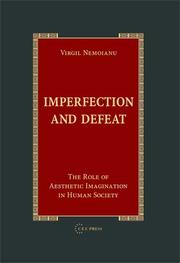
ISBN: 9786155211058 9786155211058 9786155211058 6155211051 1281376655 9786611376659 1429413425 9781429413428 9781281376657 9789637326578 963732657X 6611376658 Year: 2022 Publisher: Budapest New York
Abstract | Keywords | Export | Availability | Bookmark
 Loading...
Loading...Choose an application
- Reference Manager
- EndNote
- RefWorks (Direct export to RefWorks)
Literature is defined in a challenging way as the "science" of imperfection and defeat, or else as a type of discourse that deals with defeat, loss, uncertainty in social life, by contrast with virtually all disciplines (hard sciences or social sciences) that affirm certainties and wish to convince us of truths. If in real history most constructive attempts end up in failure, it follows that we ought to have also a field of research that examines this diversity of failures and disappointments, as well as the alternative options to historical evolution and progress. Thus literature serves an indispensable role: that of gleaning the abundance of past existence, the gratuitous and the rejected being placed here on an equal level with the useful and the successful.This provocative and unusual approach is illustrated in chapters that deal with the dialectics between literary writing and such fields as historical writing, or religious discourses, and is also illustrated by the socio-historical development of East-Central Europe.
Literature --- Literature and history. --- Aesthetics --- History and literature --- History and poetry --- Poetry and history --- History --- Aesthetics. --- Aesthetics, Historiography, Literature, Religion.
Book
ISBN: 0810130130 0810168073 9780810168077 9780810130135 Year: 2014 Publisher: Evanston, Illinois Northwestern University Press
Abstract | Keywords | Export | Availability | Bookmark
 Loading...
Loading...Choose an application
- Reference Manager
- EndNote
- RefWorks (Direct export to RefWorks)
Literature and history --- Atlantic Ocean Region --- History and literature --- History and poetry --- Poetry and history --- History --- Atlantic Area --- Atlantic Region
Book
ISBN: 9781107163362 9781316681299 9781316615157 1316730271 1316732207 1316681297 1107163366 Year: 2019 Publisher: Cambridge Cambridge University Press
Abstract | Keywords | Export | Availability | Bookmark
 Loading...
Loading...Choose an application
- Reference Manager
- EndNote
- RefWorks (Direct export to RefWorks)
History writing in the Middle Ages did not belong to any particular genre, language or class of texts. Its remit was wide, embracing the events of antiquity; the deeds of saints, rulers and abbots; archival practices; and contemporary reportage. This volume addresses the challenges presented by medieval historiography by using the diverse methodologies of medieval studies: legal and literary history, art history, religious studies, codicology, the history of the emotions, gender studies and critical race theory. Spanning one thousand years of historiography in England, Wales, Ireland and Scotland, the essays map historical thinking across literary genres and expose the rich veins of national mythmaking tapped into by medieval writers. Additionally, they attend to the ways in which medieval histories crossed linguistic and geographical borders. Together, they trace multiple temporalities and productive anachronisms that fuelled some of the most innovative medieval writing.
Historiography --- Literature and history --- Middle Ages --- History --- Historiography. --- Great Britain --- History and literature --- History and poetry --- Poetry and history --- Historical criticism --- Authorship --- Medievalists --- Criticism
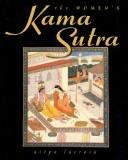
ISBN: 0585054215 9780585054216 0791421597 0791421600 079149750X Year: 1995 Publisher: Albany State University of New York Press
Abstract | Keywords | Export | Availability | Bookmark
 Loading...
Loading...Choose an application
- Reference Manager
- EndNote
- RefWorks (Direct export to RefWorks)
Culture conflict in literature. --- Literature and history. --- Comparative literature. --- Comparative literature --- Literature, Comparative --- Philology --- History and literature --- History and poetry --- Poetry and history --- History --- History and criticism
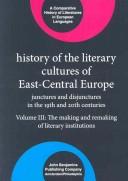
ISBN: 1282154478 9786612154478 9027292353 9789027292353 9027234558 Year: 2004 Publisher: Amsterdam Philadelphia J. Benjamins Pub.
Abstract | Keywords | Export | Availability | Bookmark
 Loading...
Loading...Choose an application
- Reference Manager
- EndNote
- RefWorks (Direct export to RefWorks)
The third volume in the History of the Literary Cultures of East-Central Europe focuses on the making and remaking of those institutional structures that engender and regulate the creation, distribution, and reception of literature. The focus here is not so much on shared institutions but rather on such region-wide analogous institutional processes as the national awakening, the modernist opening, and the communist regimentation, the canonization of texts, and censorship of literature. These processes, which took place in all of the region's cultures, were often asynchronous and subjected to different local conditions. The volume's premise is that the national awakening and institutionalization of literature were symbiotically interrelated in East-Central Europe. Each national awakening involves a language renewal, an introduction of the vernacular and its literature in schools and universities, the creation of an infrastructure for the publication of books and journals, clashes with censorship, the founding of national academies, libraries, and theaters, a (re)construction of national folklore, and the writing of histories of the vernacular literature. The four parts of this volume are titled: (1) Publishing and Censorship, (2) Theater as a Literary Institution, (3) Forging Primal Pasts: The Uses of Folk Poetry, and (4) Literary Histories: Itineraries of National Self-images.
Literature and history --- East European literature --- History and literature --- History and poetry --- Poetry and history --- History --- History and criticism. --- Europe, Eastern --- History.
Book
ISBN: 9780739196175 9780739196182 0739196189 0739196170 1322341168 Year: 2014 Publisher: Lanham, Maryland
Abstract | Keywords | Export | Availability | Bookmark
 Loading...
Loading...Choose an application
- Reference Manager
- EndNote
- RefWorks (Direct export to RefWorks)
This book channels the speculative power of science fiction to examine the limits of postmodern philosophies of history. By contrasting the questioning nature of science fiction to postmodern philosophy of history, it finds that this postmodernism often engages in a forgetful, even ahistorical, reading of the past.
Science fiction --- Literature and history. --- Postmodernism in literature. --- Alternative histories (Fiction) --- Alternate histories (Fiction) --- Fiction --- History and literature --- History and poetry --- Poetry and history --- History --- History and criticism.
Book
ISBN: 1283834618 1611484774 9781283834612 9781611484779 9781611484762 1611484766 Year: 2012 Publisher: Bucknell University Press
Abstract | Keywords | Export | Availability | Bookmark
 Loading...
Loading...Choose an application
- Reference Manager
- EndNote
- RefWorks (Direct export to RefWorks)
Through an examination of a representative body of non-fiction prose from the French Revolution debate and a variety of subgenres of the novel from the 1790-1814 period, this study traces the development of the discursive phenomenon it describes as "the struggle for history's authority" and the consequences thereof for the British novel. In particular, it provides a framework for understanding the novel's evolving relationship with history (as event, as historiography) in the period.
English fiction --- Literature and history. --- History and literature --- History and poetry --- Poetry and history --- History --- French influences. --- History and criticism. --- France --- Literature and the revolution.
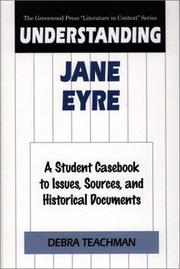
ISBN: 031300711X 9780313007118 0313309396 9780313309397 1280708301 9781280708305 9786610708307 6610708304 9798216029526 Year: 2001 Publisher: Westport, Conn. Greenwood Press
Abstract | Keywords | Export | Availability | Bookmark
 Loading...
Loading...Choose an application
- Reference Manager
- EndNote
- RefWorks (Direct export to RefWorks)
Governesses in literature. --- Literature and history --- History and literature --- History and poetry --- Poetry and history --- History --- Brontë, Charlotte, --- Bront?e, Charlotte, --- Sources.
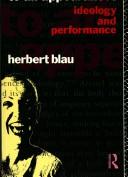
ISBN: 041501364X 0415013658 9780415013642 9780415013659 Year: 1992 Publisher: New York, N.Y. Routledge
Abstract | Keywords | Export | Availability | Bookmark
 Loading...
Loading...Choose an application
- Reference Manager
- EndNote
- RefWorks (Direct export to RefWorks)
Drama --- Theater --- Dramatic criticism --- History and literature --- Theory, etc. --- 82-2 --- Toneel. Drama --- Dramatic criticism. --- Theater. --- 82-2 Toneel. Drama --- Dramatics --- Histrionics --- Professional theater --- Stage --- Theatre --- Performing arts --- Acting --- Actors --- Drama, Modern --- Plays --- Literature --- Dialogue --- Theater criticism --- Criticism --- History and criticism&delete& --- Theory, etc --- Philosophy --- Dramas --- Dramatic works --- Playscripts --- History and criticism --- Drama - History and literature - Theory, etc.
| Listing 1 - 10 of 151 | << page >> |
Sort by
|

 Search
Search Feedback
Feedback About UniCat
About UniCat  Help
Help News
News